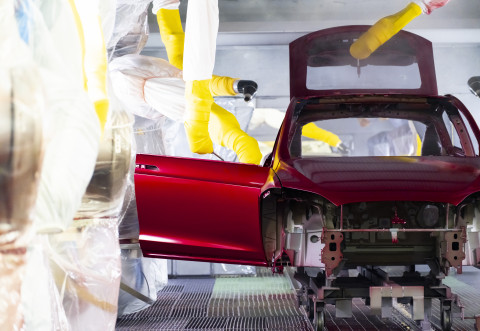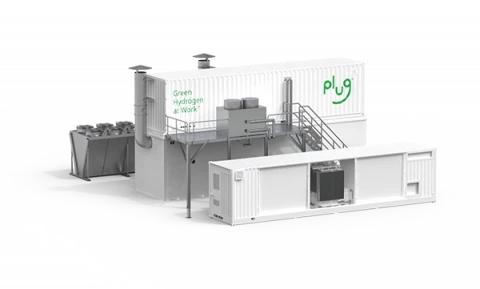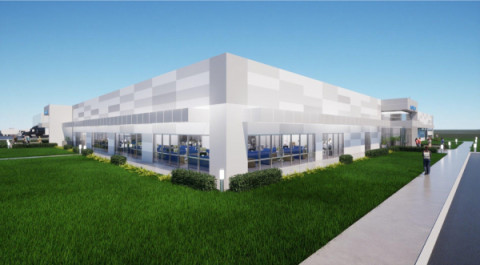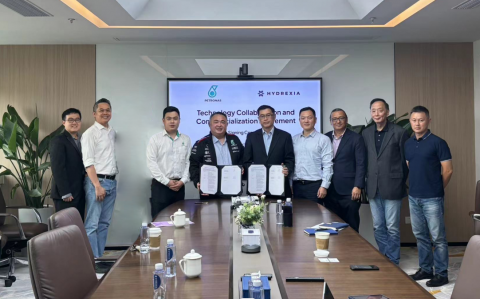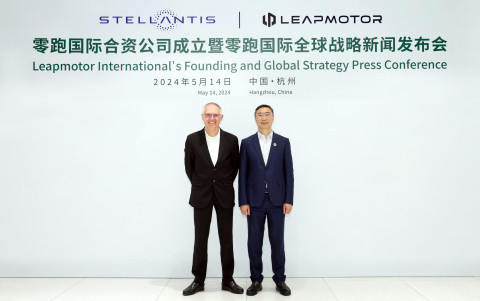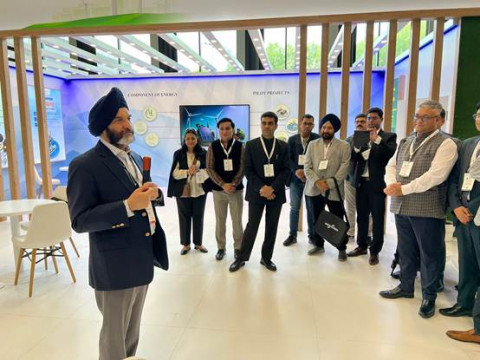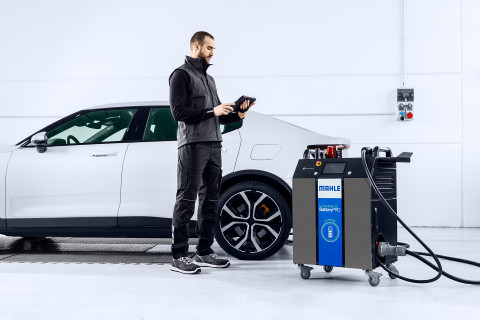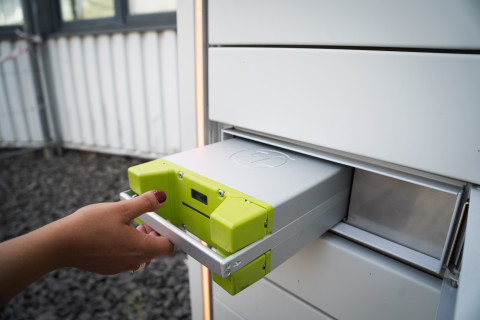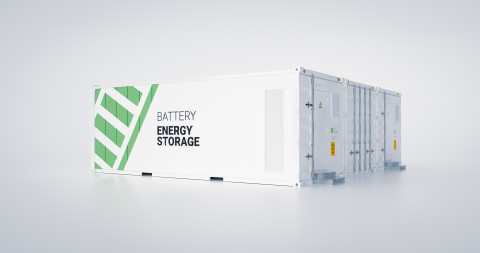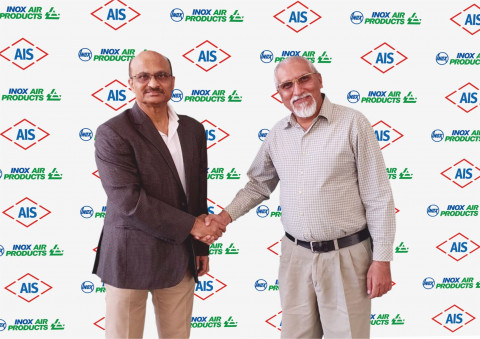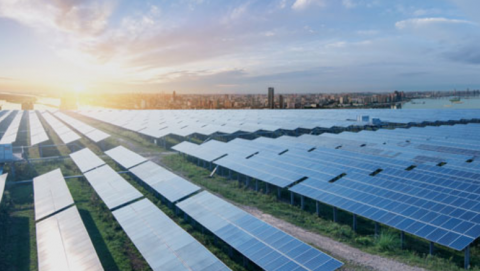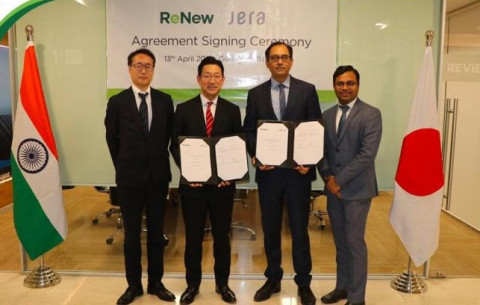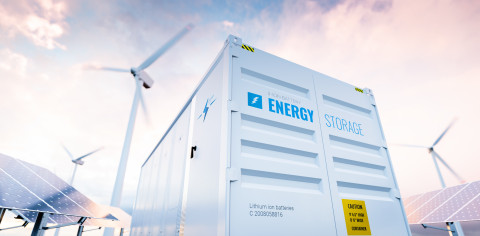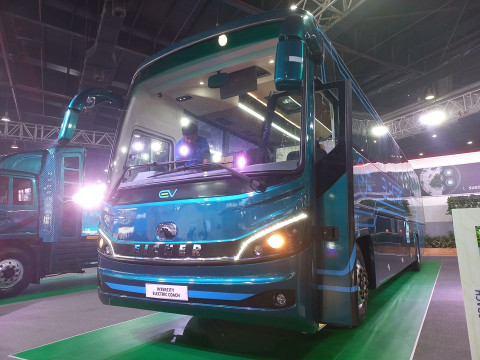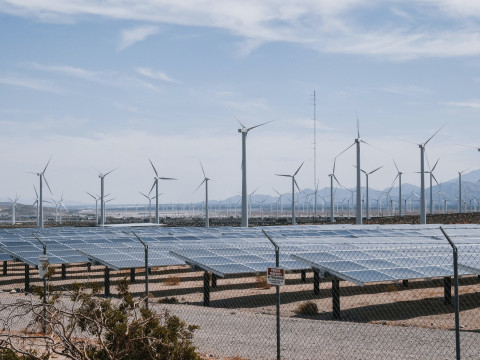Fast Forward: Accelerting India's mobility revolution
From extending consumer incentives to launching schemes to attract foreign electric vehicle makers to India, the government has left no stone unturned to make EVs a smart option for buyers. With Bharat Mobility, it even brought stakeholders together under one roof to turbocharge the shift. ETN takes stock of the country's transition.
India has witnessed remarkable advancements in mobility in recent years, with the government pushing for adoption of electric vehicles and running schemes for promoting their use, in addition to launching programs to attract global investment in the sector and attract foreign carmakers to bring in new technology.
All of this culminated in the launch of Bharat Mobility earlier this year. Stakeholders from automotive industry associations to electrical component bodies and even new mobility forums such as the India Energy Storage Alliance joined hands to hold the country's new premier trade and industry fair.
The expo featured more than 800 exhibitors from over 50 countries, highlighting cutting-edge technology, sustainable solutions and mobility breakthroughs under one roof. More than 28 vehicle manufacturers participated, in addition 600-plus auto component manufacturers. All together, more than 1,000 brands were involved in showcasing their technology, product and services. In the backdrop of the government's push for sustainable transportation, the initiative emerged as a game-changer in highlighting the future of mobility for India.
The government support was laudatory. Besides Shri Piyush Goel, Union minister for commerce and industry, attendees included Union roads minister Shri Nitin Gadkari Union micro, small and medium enterprises minister Shri Narayan Rane, Union petroleum minister Shri Hardeep Singh Puri and Union minister for heavy industries, Shri Mahendra Nath Pandey.
Prime Minister Narendra Modi attended and spoke at the event, using it as a springboard to outline his own vision for how rooftop solar and battery could help transform India, starting with clean energy for clean cooking, right up to clean power for EV charging.
Here are some key takeaways from the five-day mega event:
Electrification of Mobility
Promoting electrification of India's mobility sector is one of the core pillars of Bharat Mobility. The event sought to accelerate EV adoption and create a supportive ecosystem for EV manufacturing and charging infrastructure. Transitioning to electric mobility offers India multiple benefits, from reduced carbon footprint, to lower dependency on fossil fuels and mitigation of environmental pollution. Bharat Mobility facilitated collaboration among industry stakeholders, helping to foster innovation in EV technology, battery manufacturing, and charging solutions.
Sustainable Infrastructure
Bharat Mobility recognized the urgent need to develop sustainable infrastructure in India to support the nation's growing demand for mobility. In addition to creating EV charging infrastructure, issues such as expanding public transport and using renewable energy to power sustainable transport systems was on the agenda. The government's investments in smart cities and intelligent transportation systems will pay off here. Progress on this front will enhance countrywide connectivity and reduce urban traffic congestion, while improving the overall quality of national transportation.
Impetus to Make in India
The event proved a fillip for Make in India -- unlocking the potential of the Indian automotive industry and leveraging it for local manufacturing of various mobility solutions. The event sought to foster growth of indigenous manufacturing capabilities, both as a solution towards creating job opportunities for Indian candidates and strengthening the country's position in the global market.
Deployment of Digital Technology
One of the prospects advanced during Bharat Mobility to revolutionize the country's mobility sector was the harnessing of digital technologies to support smart mobility solutions.
The event focused on the possible future integration of technologies such as Internet of Things (IoT), Artificial Intelligence (AI), and Big Data analytics to create India-centric smart mobility solutions.
The end result will be enhanced efficiency, safety, and transport convenience for millions of Indians. For example, deployment of digital technologies will allow the kind of real-time information sharing necessary to facilitate seamless integration of various modes of transportation such as public buses, metros, local trains, railway network, etc, improving the overall mobility experience for citizens.
Events don't launch revolutions, though, and the government seems aware of that. Aside from the networking, interactions and exchanges that occurred over Bharat Mobility, the government was hard at work drafting new policies and identifying new methods to help shift India's mobility from the traditional, fossil fuel space into the new energy arena.
Here are three main actions undertaken over the past few months to promote India's mobility transition:
- Extention of consumer incentives through the Electric Mobility Promotion Scheme
- New policy to make India an global manufacturing hub in EV manufacturing
- Reduction in royalty rates for mining of critical minerals
Charging stations are an imperative
Central to achieving India's targets in e-mobility is the need for charging stations. According to the India Electric Vehicle Charging Infrastructure & Battery Swapping Market Overview Report by the India Energy Storage Alliance (IESA), India's EV charger market is set for ground-breaking transformation and strong growth this decade, propelled by the following factors:
• Annual sales of lithium-ion based EVs (all segments) are expected to be 17 million in 2030 under business-as-usual scenario
• Presence of supportive policies and regulations in some states such as capital subsidy for deployment of slow and fast EV chargers, allocation of specific percentage for EV charging ready parking spots in new commercial
and residential buildings
• Collaboration among EV OEMs (Hero Electric, BYD India, Ather Energy) and charge point operators (Charge Zone, Magenta ChargeGrid) will boost set up of new EV charging stations in forecast period.
• Further, real estate developer companies such as Omaxe, Lodha Group, MyGate, and Rustomjee Group collaborated with EV charging station developer companies to deploy EV charging solutions in their new and existing properties.
Recently, the Tata group has become active on EV charging stations in India. The group, which has more than 1 lakh EVs on India roads, announced deals with Bharat Petroleum and Hindustan Petroleum to develop charging stations.
Automaker Mahindra & Mahindra signed an MoU with Adani Total Energies E-Mobility Ltd for the creation of an expansive EV charging infrastructure across the country. The partnership enables owners of the Mahindra XUV400 electric SUV to access more than 1,100 chargers on the 'Bluesense+' App.
